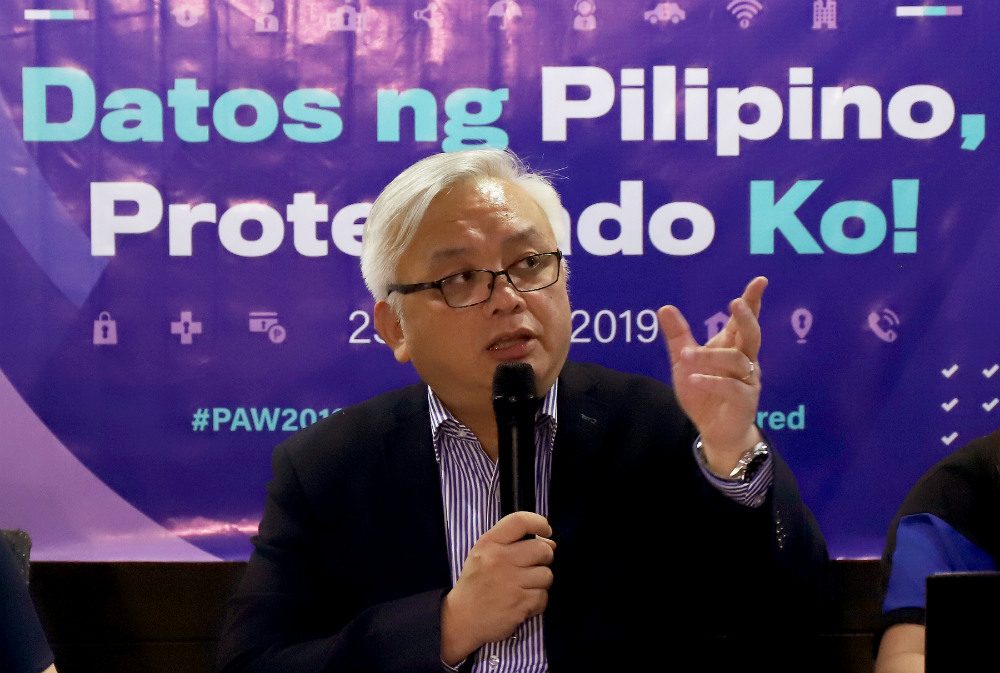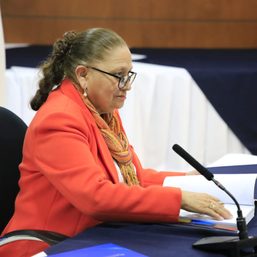SUMMARY
This is AI generated summarization, which may have errors. For context, always refer to the full article.

MANILA, Philippines – The National Privacy Commission (NPC) reported on Tuesday, May 21, it has begun conducting hearings on online lending apps accused of harassing and shaming borrowers.
“Complainants say the harassment and shaming started when they failed to pay their balances on time. The people behind the lending app called or texted their contact list about their inability to return the money, causing them embarrassment and emotional stress,” NPC Commissioner Liboro said.
The complaints have been coming in “over the past few months,” says Liboro, which “pile up by the day from individuals accusing online lending apps of rude practices.”
The commission has received around 485 of these complaints, alleging harassment and shaming by at least 48 online lending apps. The complaints are a concern for the NPC because the online lending apps allegedly “misused the borrower’s information, including the disclosure of unpaid balances to other people.” Of the 485 cases, 235 have been formally pursued by the complainants and are now the subject of NPC hearings.The NPC explained the usage pattern for the unnamed apps, and the subsequent alleged harassment.:
- Upon download, the mobile apps allegedly require access to contact information, photos, files and documents saved in the borrower’s phone.
- Once those have been submitted, the online loan application can proceed and be processed.
- If a borrower fails to pay on time, all of his or her phone contacts receive a collection text message or call stating the borrower’s full name and outstanding balance.
Posts on the NPC Facebook page are also being hounded by similar complaints, with users naming the apps, asking for help, and talking about the stress they allegedly experienced over the apps texting their contacts about a topic that’s sensitive.
The alleged behavior of these local lending apps appear similar to that of a Chinese lending app reported back in January, which also exposed people with debt – to the extent that it showed the debtor’s location.
The issue that the NPC is looking at is the exposure of personal data – debt record that the user may not have permitted the app to share, along with the app’s ability to access and use their contacts.
The NPC has called upon the respondents for cooperation. “The NPC has started conducting hearings on the cases and it is vital that we also hear the respondent’s side of the story and we would highly appreciate it if they cooperate,” Liboro said.
If found culpable, the mobile online lending operators may “face temporary or permanent ban from operating while the NPC may also award damages to affected individuals,” and that the “cases could also be referred to the Department of Justice for criminal prosecution.”
On fraud and debt payments, Republic Act 8484, which sets criminal liabilities for issues surrounding lending, may apply. – Rappler.com
Add a comment
How does this make you feel?


![[WATCH] Try This: Empanada Salteña from Argentina](https://www.rappler.com/tachyon/2023/04/try-this-empanada-saltena-argentina.jpg?resize=257%2C257&crop=765px%2C0px%2C1037px%2C1037px)


There are no comments yet. Add your comment to start the conversation.